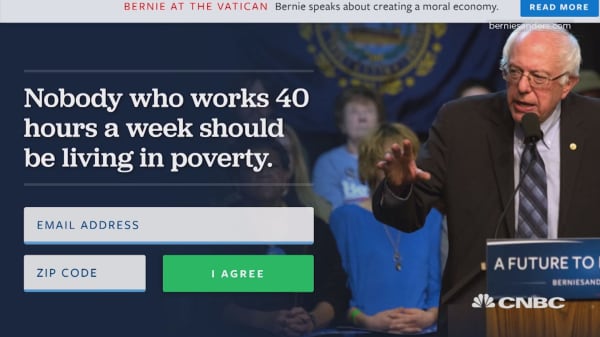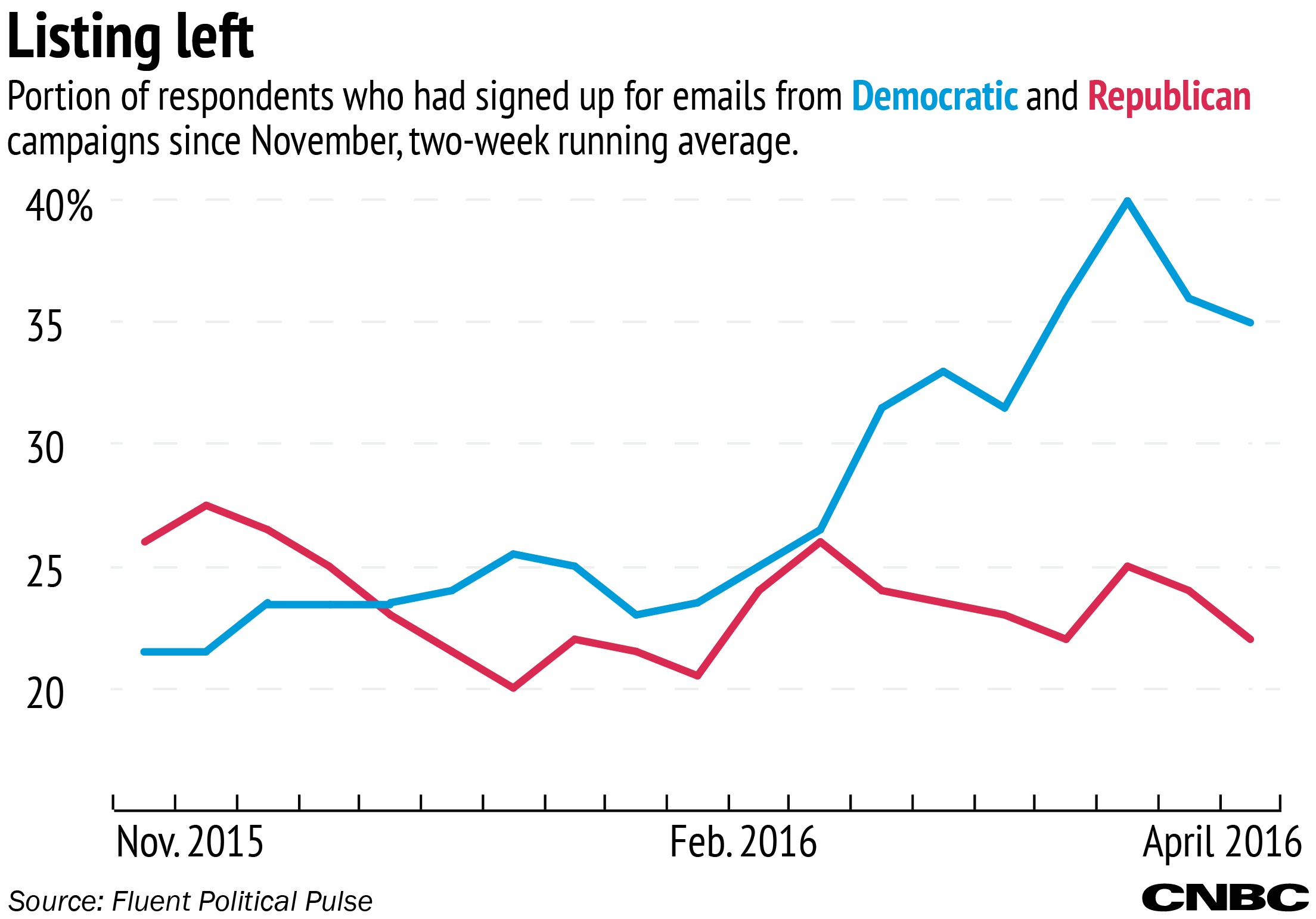Political campaigns — and their need for media attention — are like a true version of that myth about sharks: They need to keep moving to survive. If they don't, they drown. Stay still and die.
As far as meaningful engagement goes, the Republicans might have hit a stalemate.
Maybe the public has just become bored of the show and they're changing the channel. Or maybe the electorate is carved up and everyone knows who they're voting for, period. Or more simply, most people are expecting a brokered convention this summer that will sort everything out, making the next three months seem less important.
Just look at New York: Donald Trump has a commanding 30-point lead over John Kasich and Ted Cruz in recent polls. On the Democratic side, Hillary Clinton is leading in her adopted state, but only by 13 points.
We know that across a number of metrics, the Democrats have started outpacing the Republicans in terms of voter engagement. For the study, Fluent used its Political Pulse surveys to gauge the public's involvement with the campaigns.
In email signups, which is one of the most important drivers of political action these days. Since mid-February, the rate at which Democrats are signing voters up has increased by 44 percent. The growth in Republican signups has dropped by 12 percent in that same time. People are still signing up for emails, but at a dwindling rate.
One reason for that is the shrinking field of GOP candidates. Young pols like Marco Rubio and those with robust campaign efforts like Jeb Bush — both of whom had strong email-marketing elements to their campaigns — have fallen out of the race.
Trump, on the other hand, relies on open platforms like Twitter and incessant news coverage to disseminate his message.












